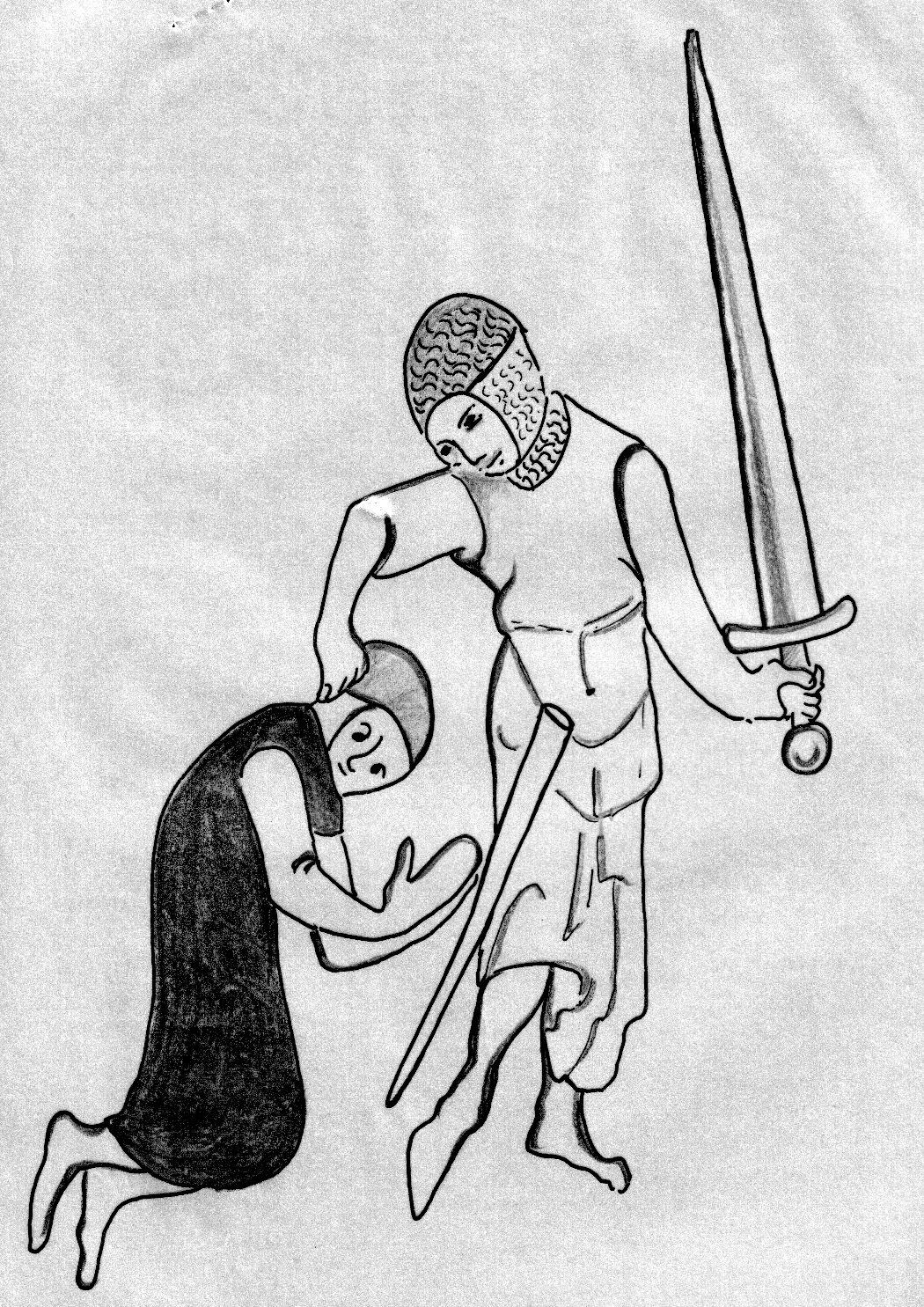The Achievements of Llywelyn ap Gruffydd
 It
is very difficult to sum up the achievements of Prince
Llywelyn. He is always portrayed as Llywelyn the Last, a name
totally unfitted to the man who, according to the treaty of Montgomery
in 1267, was actually Llywelyn the First!
It
is very difficult to sum up the achievements of Prince
Llywelyn. He is always portrayed as Llywelyn the Last, a name
totally unfitted to the man who, according to the treaty of Montgomery
in 1267, was actually Llywelyn the First!
Llywelyn's life is
filled with unknowns. No one knows exactly when he was born
or why he
was so estranged to his brothers that he kept one locked up for most of
his life, another was driven from Wales and the youngest even plotted
to kill him.
By 1240 Llywelyn was
lord or overlord of Maelienydd and Gwrtheyrnion in Rhwng Gwy a Hafren,
important border
lordships often held by the Mortimers. Here he was a baron of
his half uncle,
Prince Dafydd ap Llywelyn. This was at a time when his
father, Gruffydd ap Llywelyn (d.1244)
and elder brother (Owain Goch) were fighting in opposition to
Dafydd!
Llywelyn seems to have subsequently concurred in the imprisonment of
both his father and possibly all his brothers by Prince Dafydd.
In 1241 Llywelyn and
Dafydd tasted bitter defeat at the hands of King Henry III and the
Mortimers. Consequently Llywelyn was forced to quitclaim away his
rights in Maelienydd and
Gwrtheyrnion. The Mortimers obviously knew a threat when they
saw one!
In 1246 Prince Dafydd
died in the middle of his second war with Henry III and Llywelyn
stepped seamlessly into his shoes. His father, Gruffydd, had
died in 1244. At this point Henry III released Llywelyn's
brother Owain Goch and although it seemed for a while as if the two
brother's would fight it out for the control of Gwynedd, wiser
counsel's prevailed and the two agreed to share Gwynedd between
themselves and in early 1247 they made their peace with Henry III.
However, the truce
between the brothers proved fickle and there were disagreements from
the first. These disputes were sent to Henry III to
arbitrate.
The antagonism seems to have revolved around Welsh law and the
succession. Owain Goch, far more Anglophile in outlook than
Llywelyn, wanted to maintain the Norman version of gravelkind, the law
of Welsh succession, by which the patrimony was divided amongst all
surviving sons. Llywelyn had no objection to the division of
the patrimony, but he believed, like his grandfather, Llywelyn ab
Iorwerth, and his uncle, Dafydd ap Llywelyn, had before him, that one
man from the royal family of Gwynedd should be prince of all the lesser
men. This difference of opinion led to war between the
brothers and in 1255 Owain and his younger brother, Dafydd, were
defeated in pitched battle by Llywelyn and captured. This
effectively settled the issue and in November 1256 Llywelyn broke his
vows of
fealty to Henry III and invaded his territories to turn the clock back
to 1234 - the high point of the career of his grandfather, Llywelyn ab
Iorwerth.
After two years of
fighting Llywelyn had effectively tripled the territories under his
control and brought many of the Welsh lords and princes under his
effective authority from the borders of Cardigan and Carmarthen in the
south to Rhayadr and nearly Montgomery
in the east and almost to the
gates of Chester in the north, although here and there stubborn
garrisons held firm against his rule. After further, mainly
victorious campaigns, King Henry III finally recognised Llywelyn as
prince of Wales, the first and last recognised native prince of Wales
since Gruffydd ap Llywelyn in 1063. This is rightly
recognised as Llywelyn's greatest achievement. However, he
failed the test as a statesman, not through military ineptitude, but
probably through vanity. His half-uncle, Dafydd ab Owain Gwynedd, had been the grandson
of King John of England - yet Llywelyn himself had no Plantagenet
blood. Consequently he negotiated for a royal bride with
increasing frustration that led to his defeat and total
undoing. In 1276 he went to war with Edward I who was holding
his intended bride, a granddaughter of King John, a captive,
and lost the
war. In order to obtain his bride he promised Edward that his
title of Prince of Wales would only pass to his legitimate male
offspring by his new bride, Edward's cousin, Eleanor
Montfort. All could still have been well if it were not for
the fact that Eleanor died giving birth to a daughter.
Effectively Llywelyn had lost the war against time as he could not hope
to find another royal bride after going to war with Edward yet again
and even if he did so, he was now too old for his potential son to
reach manhood before his death. In any case Llywelyn fell in
the ensuing war with Edward and his principality escheated to the Crown
and was given eventually to Edward's son, Edward of Caernarfon, later
Edward II.
The achievements of
Llywelyn were legion. He made Wales a transient state and
even had that principality twice recognised by kings of
England. This no other man managed to achieve. His failure and downfall was
more human - he failed to conceive.